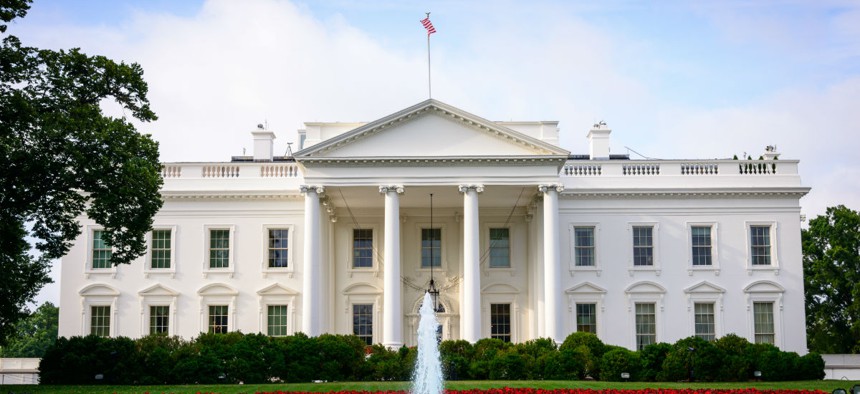13 Unions File Lawsuit Against All Three Workforce Executive Orders
The coalition of smaller federal employee unions argues that the executive orders unconstitutionally usurp the power of Congress, unions, management and independent agencies.
A group of 13 federal employee unions jointly sued the Trump administration and the Office of Personnel Management Wednesday, challenging the legality of three controversial workforce executive orders.
The lawsuit, filed in U.S. District Court for the District of Columbia, marks the third legal challenge from federal employee unions, but it is the first that seeks to strike down all three of the executive orders signed by President Trump last month. Those orders aim to make it easier to fire federal workers, limit collective bargaining negotiations, and limit the time union employees can spend on official time, a practice where agencies compensate employees for their time spent on representational matters.
“Generally, our claim is that the Civil Service Reform Act gave the president the authority to issue executive orders in some narrow, specified areas, and it also gave OPM the ability to issue regulations regarding employee conduct,” said Jeff Friday, general counsel for the National Federation of Federal Employees, one of the plaintiff groups. “But Congress specifically did not have the president or OPM in the primary role of implementing the statute, instead tasking the Federal Labor Relations Authority, the Federal Mediation and Conciliation Service [and other agencies with implementation] . . . These executive orders really impede on these agencies’ authority in those areas, and it impedes on the primary authority for workers and management to sit down at the bargaining table and come up with good agreements.”
The suit argues that several specific provisions of the recent executive orders run afoul of existing law. Instructions from Trump and OPM to limit the length of performance improvement plans, the amount of official time agencies can allow unions and employees, and what matters are appealable through the grievance procedures, all impinge on agencies and unions’ authority, as defined by Congress, the unions said.
NFFE President Randy Erwin said the executive orders are an effort to end collective bargaining for federal employees altogether.
“If implemented, these orders would wreck the system of collective bargaining in the federal sector,” he said. “They would eliminate meaningful due process for federal employees, which are essential to American democracy, and they would make it all but impossible to provide representation to workers that unions are required by law to provide.”
Suzanne Summerlin, associate general counsel for NFFE, said the unions would seek a preliminary injunction from the court as soon as possible. Under the executive orders, OPM is required to issue regulations and guidance by July 9, but the unions fear action could come even sooner than that.
“We believe OPM could issue new regulations any day now, so our plan and our purpose is to move quickly to get relief,” she said.
But Friday said that he has already heard anecdotal reports of agencies pushing to renegotiate or invalidate existing collective bargaining agreements.
“We’re already hearing stories where agencies have ripped up contracts or where agencies have told unions they’re going to rescind portions of existing contracts,” he said. “It even goes down to instances where folks have told the union that they are no longer allowed to replace the printer cartridge in the union office.”
The 13 unions have come together under the banner of the Federal Workers Alliance, and together represent more than 300,000 federal employees. Lawyers for the group said they expect as the case proceeds in court, their challenge likely will be combined with lawsuits filed by the American Federation of Government Employees and the National Treasury Employees Union.
“It’s the custom of the court that all challenges like this are consolidated into one case, and all of the unions that have filed suit are committed to working together," said Mark Schneider, general counsel for the International Association of Machinists and Aerospace Workers. “The arguments we are making are consistent with those in the other lawsuits, so what you’ll see is all unions speaking with one voice on this set of issues.”








